Aquatic Invertebrates
Media
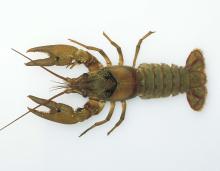
Species Types
Scientific Name
About 38 species in Missouri
Description
Crayfish are freshwater aquatic invertebrates that look a lot like small lobsters, to which they are related. There are about 38 species of crayfish in Missouri.
Media
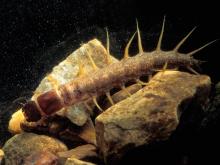
Species Types
Scientific Name
Chauliodes, Neohermes, and Nigronia spp. (in eastern US)
Description
Fishfly larvae look a lot like their cousins the hellgrammites, but they lack cottony or hairy gill tufts along the abdomen, and they have 2 short, fleshy tails at the hind tip.
Media
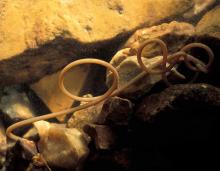
Species Types
Scientific Name
About 350 species scientifically described.
Description
Adult horsehair worms can be nearly 3 feet long and live in water. They are practically featureless, smooth, aquatic worms that writhe into knots and curls.
Media

Species Types
Scientific Name
Dugesia, Planaria, and other genera
Description
Unlike their parasitic cousins in the flatworm group, turbellarians, or planarians, are tiny carnivores or detritus-eaters that glide smoothly across submerged leaves and other objects.
Media
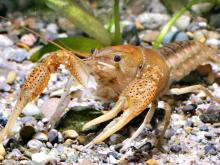
Species Types
Scientific Name
Procambarus acutus
Description
Adult White River crawfish are usually a deep burgundy red with a black V-shaped stripe on the abdomen. Juveniles are gray with dark spots scattered over the carapace. In Missouri, this species mostly occurs in the Bootheel and north along the Mississippi River.
Media

Species Types
Scientific Name
Faxonius immunis (formerly Orconectes immunis)
Description
The calico crayfish is rather plain: gray-green with a pale central zone along the middle of the carapace and abdomen. The pincers are orange-tipped, and in mature males are tinged with purple. It is usually only found in the northern half of the state.
Media
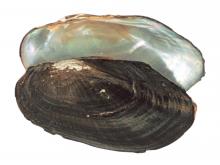
Species Types
Scientific Name
Bivalve molluscs in order Unionoida
Description
Secretive and seldom seen, freshwater mussels are extraordinarily diverse in Missouri. We have nearly 70 species within our borders. Many are declining, and several are endangered.
Media
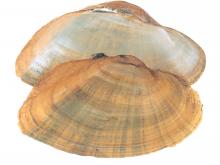
Species Types
Scientific Name
Alasmidonta marginata
Description
The elktoe is one of many Missouri mussels with a declining population.
Media

Species Types
Scientific Name
Various species in the subclass Hirudinea
Description
Most people are repulsed by leeches. But once you get past the fact that many species are parasitic bloodsuckers, you will discover that they are fascinating creatures with an important role in nature.
Media

Species Types
Scientific Name
Freshwater species in the phylum Bryozoa
Description
Bryozoans are tiny, filter-feeding invertebrates. They create colonies that can be mossy, branching, or round and jellylike.
See Also
About Aquatic Invertebrates in Missouri
Missouri's streams, lakes, and other aquatic habitats hold thousands of kinds of invertebrates — worms, freshwater mussels, snails, crayfish, insects, and other animals without backbones. These creatures are vital links in the aquatic food chain, and their presence and numbers tell us a lot about water quality.





















